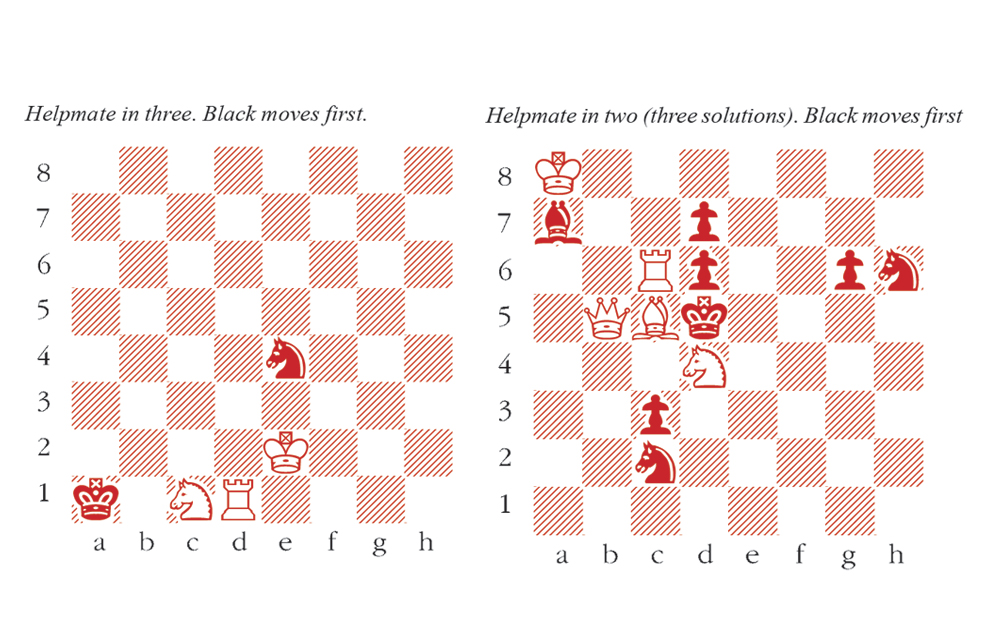Chess, to state the obvious, is different from painting, or dance, or poetry. There is artistry in it, and yet the game stands apart. When we admire a sequence of moves, they only make sense viewed through the filter of an imagined adversarial contest. Sacrifices and combinations sparkle according to the obstacles that are overcome. The finest chess compositions display dazzling ideas from both sides before the denouement.
And yet there is a celebrated genre of chess problem which dispenses with that premise. I’m thinking of the helpmate, in which both sides conspire to achieve mate on the board as quickly as possible. This is chess as choreography. Freed from the assumption that moves must be rational, the simple gliding of pieces around the board turns out to be full of aesthetic life.
Take the position in the left diagram, composed by Pal Benko (Berliner Morgenpost, 1970). The stipulation is ‘Helpmate in three’ and by convention, Black moves first, so that White is the one who will deliver mate. That is, the sequence of moves goes BWBWBW. The only constraint is that each move must be legal; for example, one cannot ignore a check.
As a solver, one starts by conceiving a mating pattern, and one plausible attempt goes 1 Nc3+ Kd3 2 Na2 Kc2 and on the next move, 3 Nc1-b3 would be mate. There’s the rub – Black has no suitable passing move, so this turns out to be a dead end. The same could be said of the sequence 1 Nd2 Na2+ 2 Nb1 Nc3 and now 3 Rxb1 would be mate, but Black cannot pass. The solution is utterly paradoxical in that Black must rush the king away from the corner: 1 Kb2 Rd5 2 Kc3 Rc5+ 3 Kd4 Nb3#
Helpmates are a regular feature of problem solving competitions, such as the Winton British Chess Solving Championship, which took place in February at Harrow School. For the second year running, David Hodge won the title, finishing narrowly ahead of Jonathan Mestel, a former World Chess Solving champion. Remarkably, the bronze medal went to Audrey Kueh, a strong over-the-board player but with no previous experience of solving championships.
I particularly enjoyed tackling the helpmate below. It was composed by Unto Heinonen (Springaren 1988) and appeared in the minor section of the championship, which is aimed at less experienced solvers. It is a helpmate in two (i.e. BWBW) and has the feature that there are three distinct solutions. In a traditional chess problem, that would be considered a major aesthetic flaw, but in helpmates the relation between the solutions can accentuate the impact, as it does here. Solution above (right diagram).
Three white pieces are open to capture, and in each solution two of them are eliminated:
1 dxc5 Qe2 2 Kxd4 Rd6#
1 dxc6 Qb3+ 2 Kc5 Ne6#
1 Nxd4 Qc4+ 2 Kxc6 Bxa7#





Comments